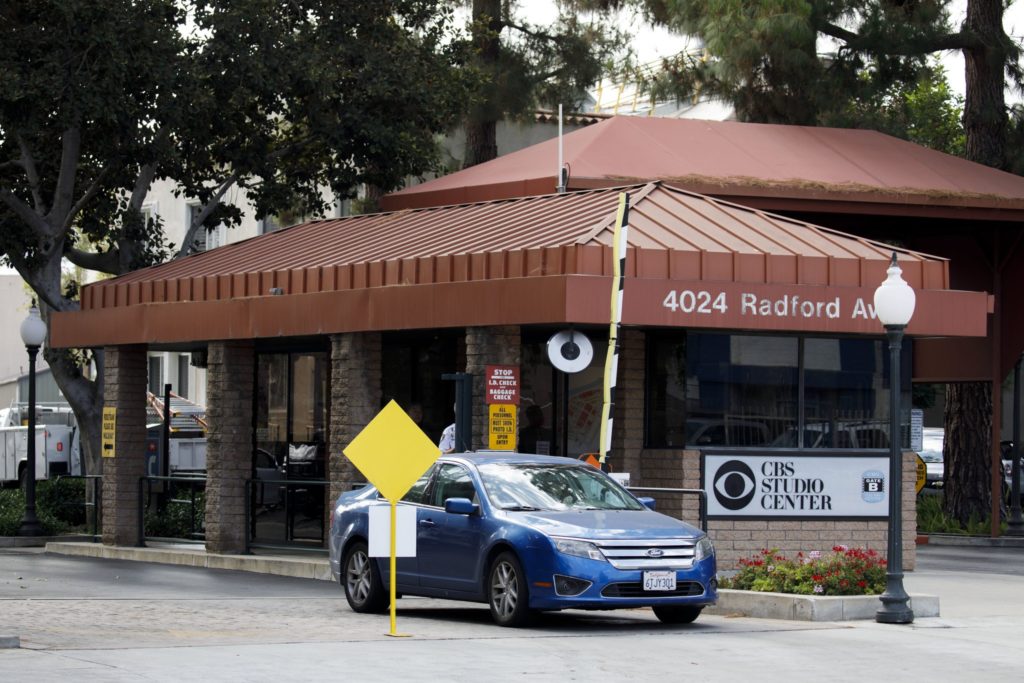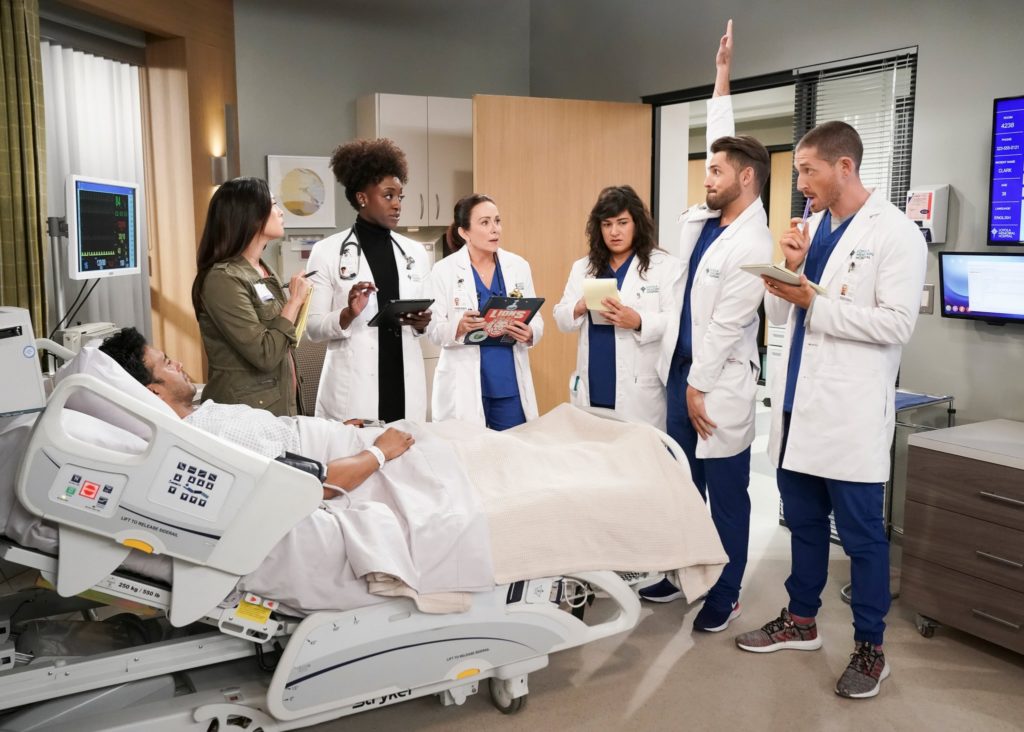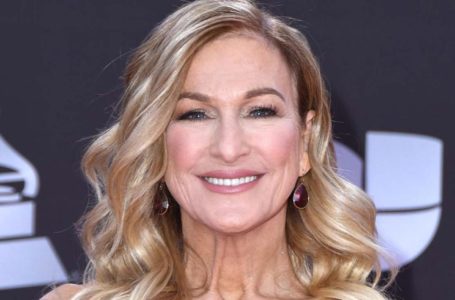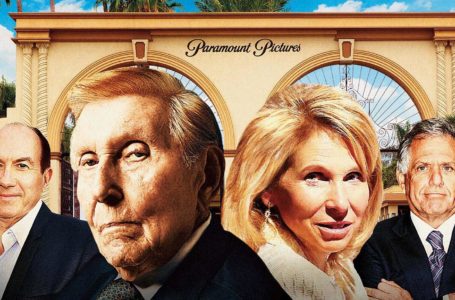“None of this had to happen”: The network’s new sexual harassment policy did not prevent them from leaving after accusations against the star’s husband, a producer.
In May, CBS employees received an email introducing a new plan for handling sexual harassment complaints. There would be a “very expanded and visible” structure, the email said, with “highly trained HR executives” at every CBS program to “ensure safety and build trust.”
Trust was an issue at CBS. In the last two years, the company’s longtime chief executive, Leslie Moonves, and the anchor Charlie Rose were fired after CBS determined that they had engaged in sexual misconduct. (Both men have denied the accusations.) Another case led to a $9.5 million payment by CBS to the actress Eliza Dushku, who said she had been written off the show “Bull” after she complained that its star, Michael Weatherly, had made her uncomfortable with his crude comments.
The new process was put to the test soon after it was announced — and the results were ambiguous, at best, as CBS tried to get its bearings in a landscape reshaped by the #MeToo movement. In the end, no one involved came away happy.
In early September, Broti Gupta, a writer on “Carol’s Second Act,” a sitcom starring the Emmy-winning actress Patricia Heaton, made a formal complaint against David Hunt, an executive producer on the show who is also Ms. Heaton’s husband. Ms. Gupta, 25, accused Mr. Hunt, 65, of touching her inappropriately on two occasions.
When she complained to human resources, Ms. Gupta said she did not think Mr. Hunt should be fired. Instead, she wanted him to go through sexual harassment training and see why he had made her uncomfortable. But after she made the complaint, she felt she was being penalized at work, she said in an interview. She quit the show in mid-September.
Margee Magee, 43, a writer with the title of co-executive producer, resigned in October. She said she quit because she felt she had been stripped of responsibilities after talking to higher-ups about tensions arising from Ms. Gupta’s complaint.
CBS Television Studios said in a statement that it had dealt with the complaints fairly, adding that Mr. Hunt had “cooperated fully with the process.”

Deciding to Go to H.R.
Along with her husband, Ms. Heaton is an executive producer of “Carol’s Second Act,” a sitcom that had its broadcast debut Sept. 26. She has been married to Mr. Hunt, a Juilliard-trained actor and producer from Britain, since 1990. “Everybody Loves Raymond,” a CBS hit from 1996 to 2005, made Ms. Heaton a household name. On the new show, taped before an audience on the CBS Studio Center lot in Los Angeles, she plays a former teacher who becomes a doctor in a late-in-life career shift.
Ms. Gupta, who published humor pieces at McSweeney’s and The New Yorker while still in college, and later wrote for the ABC sitcom “Speechless” and the Netflix show “Friends From College,” joined the writing staff in June. In early August, after a dinner for the cast and crew at Pizzeria Mozza, Ms. Gupta was standing with Mr. Hunt and others in the valet-parking area. She said she had not met him before that night. He hugged her twice from the side, Ms. Gupta said, before he complimented her pants and ran a hand up the side of her thigh.
Bryan Freedman, a lawyer for Ms. Heaton and Mr. Hunt, said in an email that his client “did not remember the details as described” and that he “does not recall rubbing anyone’s thigh or leg and he disputes that characterization of it.”
Ms. Gupta said the experience outside the restaurant made her uncomfortable. On her way home, she called her boyfriend, Greg Gallant, a television writer, and described what had happened. A friend, Dylan Gelula, an actress, later went to her apartment, and Ms. Gupta told her about the incident. (Mr. Gallant and Ms. Gelula confirmed the conversations they had that night with Ms. Gupta.)
Mr. Gallant said he encouraged Ms. Gupta to complain to the showrunners. But the women had reservations. “We both kind of decided that it would be bad for her to do anything about it,” Ms. Gelula said. “And, clearly, we were correct.”
For several weeks, Ms. Gupta said, she told no one at “Carol’s Second Act” about her accusation against Mr. Hunt. But then, she said, there was another instance of unwanted contact.
She was seated on a high folding chair, the kind known as a director’s chair, on the lot. Ms. Magee, the co-executive producer, was seated next to her as Mr. Hunt approached. He seemed to be looking for something, Ms. Gupta and Ms. Magee said, when he took Ms. Gupta by the shoulders and jerked her forward. Ms. Magee jumped out of her chair and said, “Excuse me,” she told The Times. Mr. Hunt said nothing and walked away, the two women said.
…Remembers looking for a script but does not remember the detail of touching anyone’s shoulders, and if he did that, it was not intended to be offensive.
said Mr. Freedman, the lawyer of Mr. Hunt
Ms. Gupta later told Ms. Magee that it was not the first time Mr. Hunt had touched her inappropriately, and she described what had happened outside the restaurant, the two women said. Ms. Magee urged Ms. Gupta to go to the showrunners, Sarah Haskins and Emily Halpern, and was present when Ms. Gupta spoke with them. Ms. Magee considered the showrunners friends, having worked with them on other sitcoms.
After the talk with Ms. Gupta, Ms. Haskins and Ms. Halpern reported what she had said to CBS Television Studios.
In early September, Ms. Gupta then met with Ellen Goldsmith, a human resources executive. During the discussion, Ms. Gupta emphasized that she did not want Mr. Hunt kicked off the show, she said.
Later that same week, on a Friday, Ms. Gupta met again with Ms. Goldsmith. According to Ms. Gupta’s account of the discussion, Ms. Goldsmith said CBS had started an investigation and had corroborated the chair incident; and while Mr. Hunt did not recall touching Ms. Gupta outside the restaurant, Ms. Goldsmith said she had no reason to doubt it. She then asked Ms. Gupta what she would like to happen next.
“I told them just my own personal code of ethics, which is that if there is space for education instead of punitive measures, then I believe in education,” Ms. Gupta said.
The following Monday, the showrunners told the writers that they would be barred from that day’s rehearsal, because the previous run-throughs had gotten too chaotic. On Thursday, the day the show was taped, the writers were informed that they would no longer be allowed to run revised versions of failed jokes to the showrunners, as had been the usual practice. Instead, only the episode’s credited writer would be allowed to do so.

Ms. Gupta and Ms. Magee said they suspected that the changes in routine had come about as a way to keep them separated from Mr. Hunt. Other writers on the staff were “confused and a little anxious, thinking maybe they did something wrong,” Ms. Gupta said.
Andrew Brettler, the lawyer for the showrunners, Ms. Haskins and Ms. Halpern, said the plan to change the rehearsal and taping process, which were meant to reduce chaos on the set, had come about shortly before Ms. Gupta’s complaint. “It’s really more of a coincidence than anything that it happened to be on the same day,” the lawyer added.
And once the showrunners learned of the complaint, the lawyer said, they asked human resources if they could still go ahead with their planned changes. “They didn’t do anything without running it up the flagpole with H.R.,” Mr. Brettler said. CBS backed the showrunners, saying in a statement that they had decided to “streamline their production process” before Ms. Gupta complained to them about Mr. Hunt.
Ms. Magee said she confronted the showrunners after the taping and came away from the discussion believing that the changes had been made to keep Ms. Gupta and Mr. Hunt apart. Two other people who worked on the show, who were not authorized to speak publicly, said that they had the same impression from the showrunners.
After speaking to the showrunners, Ms. Magee relayed the discussion to Ms. Gupta. For Ms. Gupta, it was the last straw. She said she felt that, while Mr. Hunt seemed largely unaffected, she was being prevented from doing her job properly, and other staff writers were being penalized.
“That gave me no option but to leave the show,” Ms. Gupta said.
Ms. Haskins and Ms. Halpern said in a statement: “To be clear, we have never done and would never do anything to penalize or retaliate against anyone who raised these concerns. We are devastated that many of the inflammatory claims that have been made about us are simply not tethered to the reality of what happened.”
A Second Writer Quits
After Ms. Gupta’s departure, Ms. Magee met with Ms. Goldsmith and another human resources executive, Tim Farrell, to express her concerns. Ms. Magee described the meeting as tense. At one point, she said, her eyes welled up with tears. In her view, Mr. Farrell was unsympathetic, asking Ms. Magee if she had a massage scheduled for that weekend, she said.
“In truth,” Ms. Magee said, “the people who are there to enforce the new protocol just don’t do it.”
CBS said in response, “Our human resources team always endeavors to address issues in a professional and sensitive manner, and we must clarify that certain allegations about them have either been misstated or taken wholly out of context.”
Ms. Magee said she found herself stripped of nearly all her writing responsibilities after talking with human resources, a point disputed by the showrunners’ lawyer, who said she had been relieved of some duties well before the on-set tensions. CBS said there was “no evidence” that the showrunners had “retaliatory intent in their interactions with the writer or the producer.”
Ms. Magee quit last month. “I did not want to leave,” she said. “I love doing my job.”
Ms. Gupta and Ms. Magee hired Natasha Chesler, an employment lawyer with the Los Angeles firm Chesler McCaffrey. They told her they wanted to be paid only what they were owed under their contracts and said they would not sign nondisclosure agreements. CBS agreed to pay them and said it “supported their request to waive any contractual provisions that would prevent them from speaking about their experiences on the show.”
Mr. Hunt completed sexual harassment training Oct. 1. CBS sent him what it called a “closure letter,” which said in part, “Your behavior caused the individual who raised the concerns to feel genuinely uncomfortable in the workplace and it reflected a disregard for CBS’ policies and guidance in the matter. You are hereby cautioned not to engage in such behavior.”
Ms. Magee and Ms. Gupta said they never imagined they would end up leaving the show, back when they made their complaints. “All we wanted was for him to watch like a 45-minute harassment video,” Ms. Magee said. “None of this had to happen.”
Rachel Abrams joined The Times as a business reporter in 2013. She was part of the award-winning teams that covered sexual harassment and misconduct and General Motors’ crisis involving fatal ignition switches. She previously worked for Variety. @rachelabramsny
John Koblin covers the television industry. He reports on the companies and personalities behind the scripted TV boom, and the networks that broadcast the news. He previously covered fashion. @koblin





